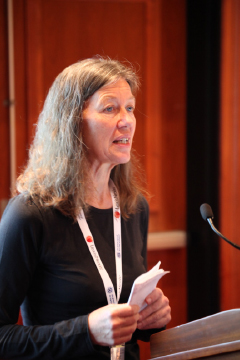Refugee crisis accounts for huge spike in pro bono legal activity
DIANA BENTLEY
The emergence of a highly active pro bono sector is among the most notable – and edifying – developments in legal practice over the last two decades. Increasing numbers of commercial lawyers, it appears, are seeking ways to apply their skills to the provision of life-changing support for those most in need. Within the last year, the international refugee crisis has provided significant additional impetus for pro bono work.
Lawyers undertaking pro bono work are generally motivated by the conviction that justice should be available to those who cannot afford their own legal representation. Now, other factors are also driving pro bono work. ‘It’s a big issue in recruitment now and with clients,' reports Peter King, a partner of Weil, Gotshal & Manges’ London office and Chair of the IBA’s Pro Bono Committee. 'Young lawyers want to do some work they feel especially good about and our commercial clients expect us to do pro bono work too.’
|

|
|
Odette Geldenhuys |
Potential recruits and clients are now likely to scrutinise the ranking reports that cover the area and pay attention to the many legal award ceremonies, which include recognition of pro bono contributions and the broader area of corporate social responsibility among commercial law firms and their fee earners.
‘‘It’s useful for firms to collaborate with other interest groups, like NGOs, working in a chosen area of work and which are close to the ground and understand the real issues
Senior Associate, Pro Bono Practice, Webber Wentzel, South Africa and IBA pro bono lawyer of the year
The international expansion of American law firms has had a significant influence on the development of pro bono legal culture in the UK and elsewhere. 'Around the early 2000s, big firms started getting skilled staff to help them establish and manage pro-bono programmes and they’re now commonplace,’ says King. ‘The pro bono culture in the UK and the US is strong and those jurisdictions have the infrastructure to support it. This is also true in places like Australia and now in more countries in South America. In Continental Europe and Asia, the profession has not been so quick to develop the practice.’
However, the area is still evolving, with marked changes in pro bono work internationally. Large increases in the pro bono hours worked in firms in Asia are now apparent and significant increases in South Africa and China are being reported.
In September 2016, Odette Geldenhuys, Senior Associate in the Pro Bono Practice of Webber Wentzel of South Africa and founder of ProBono.Org, was named pro bono lawyer of the year by the IBA. She received the award at the Association’s Annual Conference, in Washington, DC. ‘The legal profession of a country must be established and profitable for the pro bono sector to develop,’ she says. ‘It can’t emerge when lawyers themselves are struggling to survive. Certainly now in Africa, lawyers in more countries are talking about it.’
|

|
|
Peter King |
While the range of pro bono projects is considerable, firms usually have a common aim. ‘Most firms want to make a real difference with their pro bono work in some way,‘ says King. The most recent and clear evidence of this is found in the Thomson Reuters Foundation 2016 TrustLaw Index of Pro Bono which reported that the international refugee crisis has caused a major spur in pro bono activity over the past year. Like others, King’s own firm assesses the likely impact of possible projects carefully. ‘We provide a lot of free work to NGOs and charities so they have more funds available for their work.’
Firms also want to ensure that their lawyers have the right opportunities. ‘Every lawyer in our firm undertakes a pro bono matter each year and partners must supervise at least one project,’ says King. ‘We want lawyers to be able to follow their real interests too so we try not to be very prescriptive about projects, otherwise it’s just another job for people.’
All firms need to find the best way for them to manage pro bono projects based on their culture and resources. Geldenhuys’s firm, for example, rotates their trainee lawyers through a dedicated pro bono unit, but she points out that their more senior lawyers undertake pro bono work too.
King and Geldenhuys also warn that firms must carefully monitor their pro bono work. ‘Firms should examine their own capabilities when assessing pro bono projects,’ says King. 'They can think that pro bono work isn’t as important as their ordinary work and may not supervise it properly. But you must give pro bono work the same degree of care as any other job. If a project involves work with which you’re not familiar, collaborate with someone who has the required expertise. Firms should also try and manage the work so that it fits in with its other work as well as possible and it’s not detached.‘
Geldenhuys urges firms to align their pro bono work to their practices as well as possible. Ideally, she says, it should form part of a wider strategy for social change. `It’s useful for firms to collaborate with other interest groups, like NGOs, working in a chosen area of work and which are close to the ground and understand the real issues,’ she says.
Clearing houses have now emerged and provide useful services matching clients with lawyers. In England and Wales, LawWorks connects volunteer lawyers with people in need as does ProBono.Org in South Africa. Advocates for International Development (A4ID) partners those working in development with firms around the world.
King also notes that firms are increasingly collaborating with clients on pro bono projects and with other firms. ‘On one project we’re working with the client’s in-house lawyers who want to do more pro bono work and we can help them achieve that aim so this kind of thing is a very positive development,’ he says.
